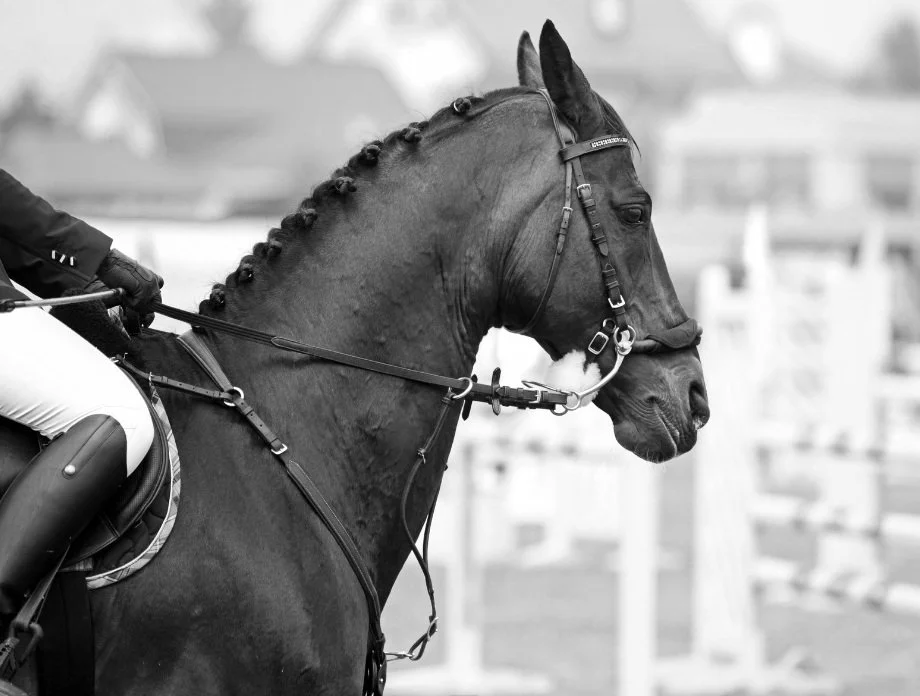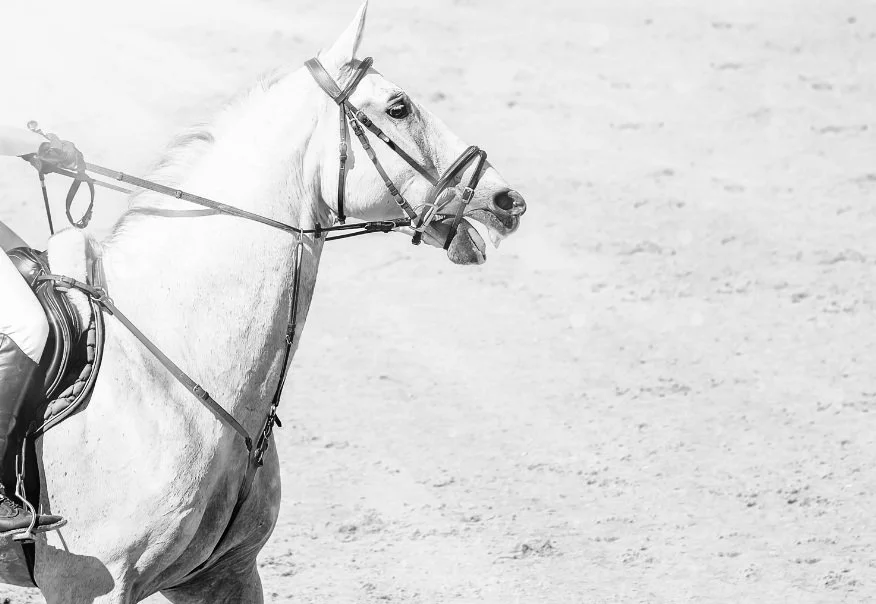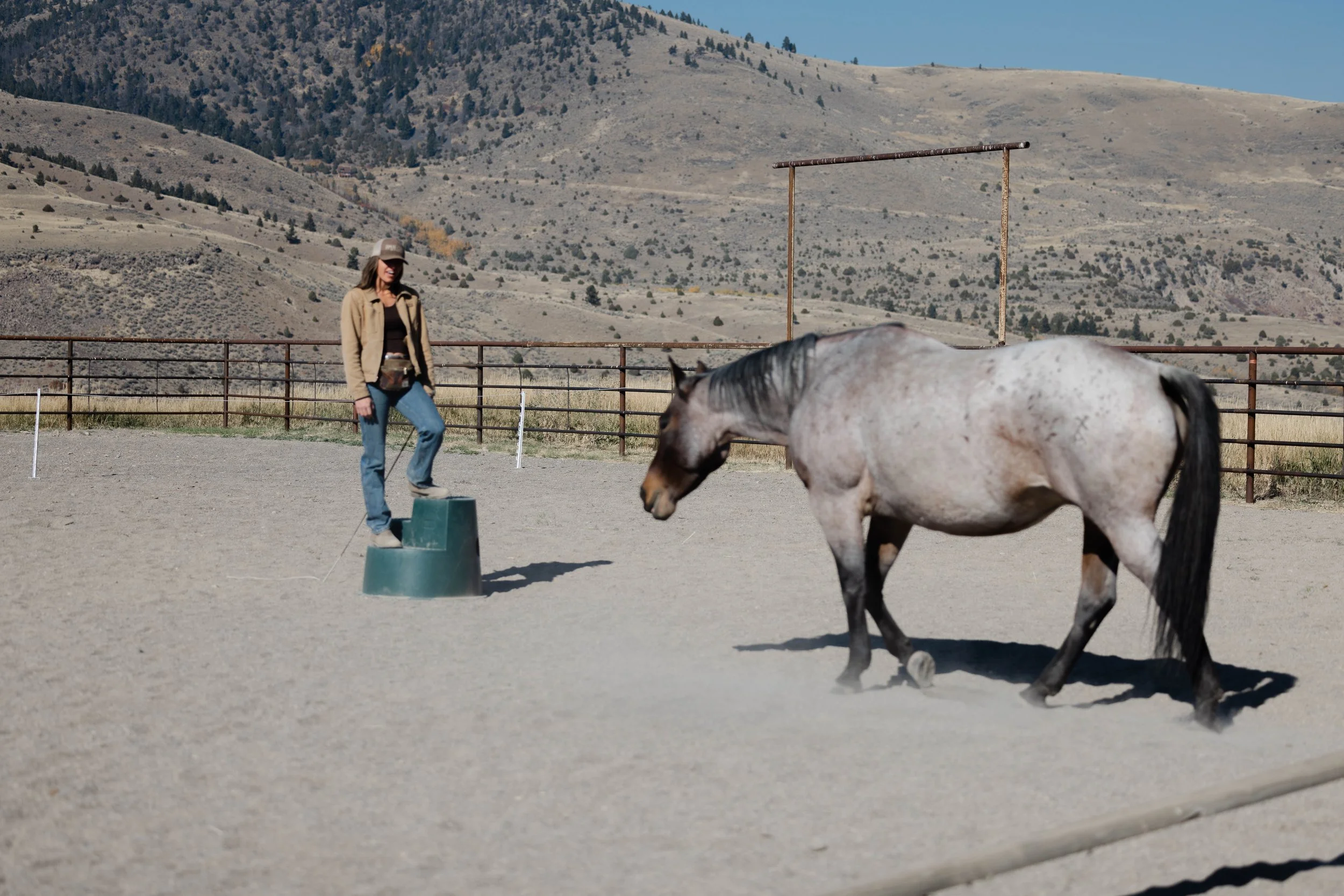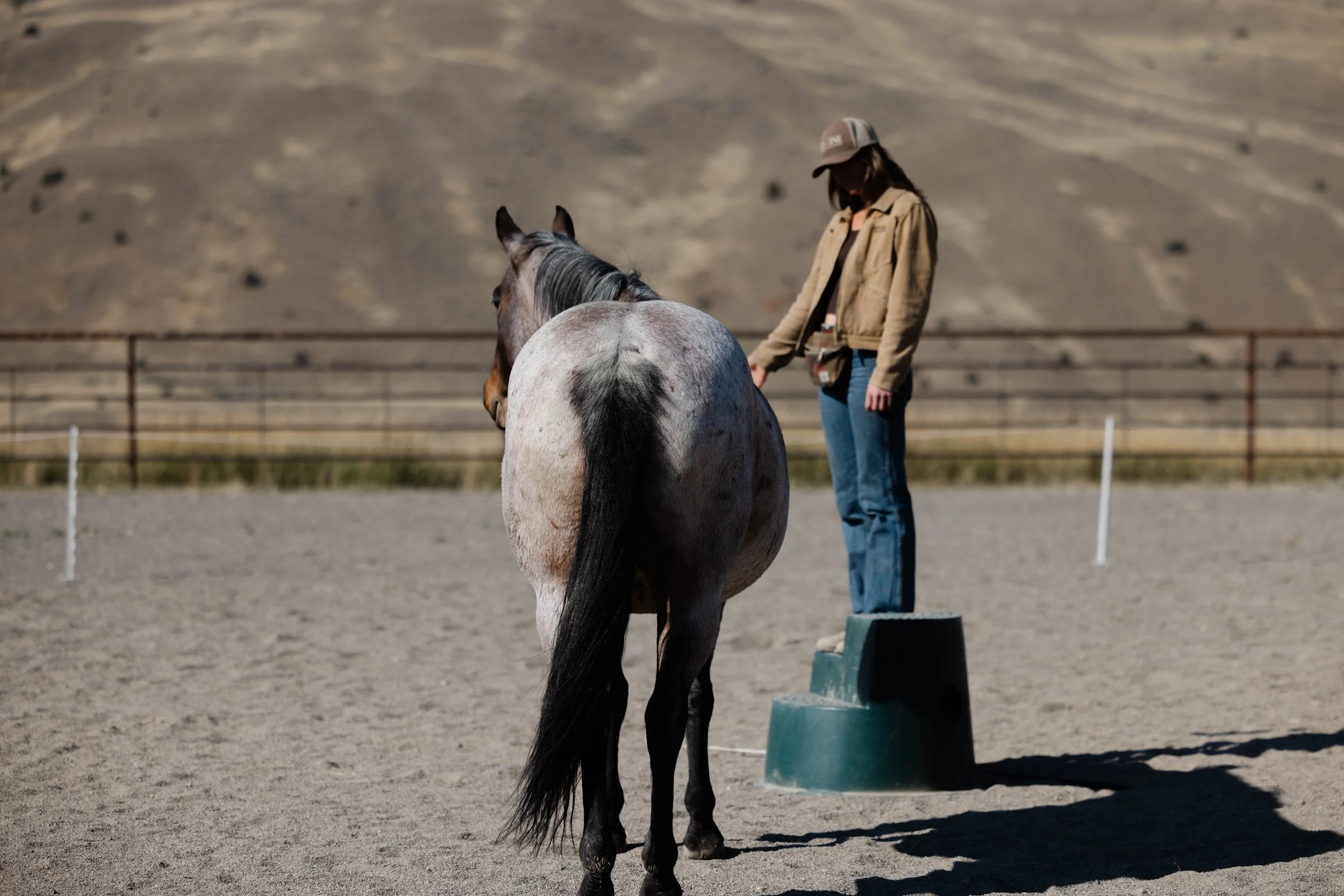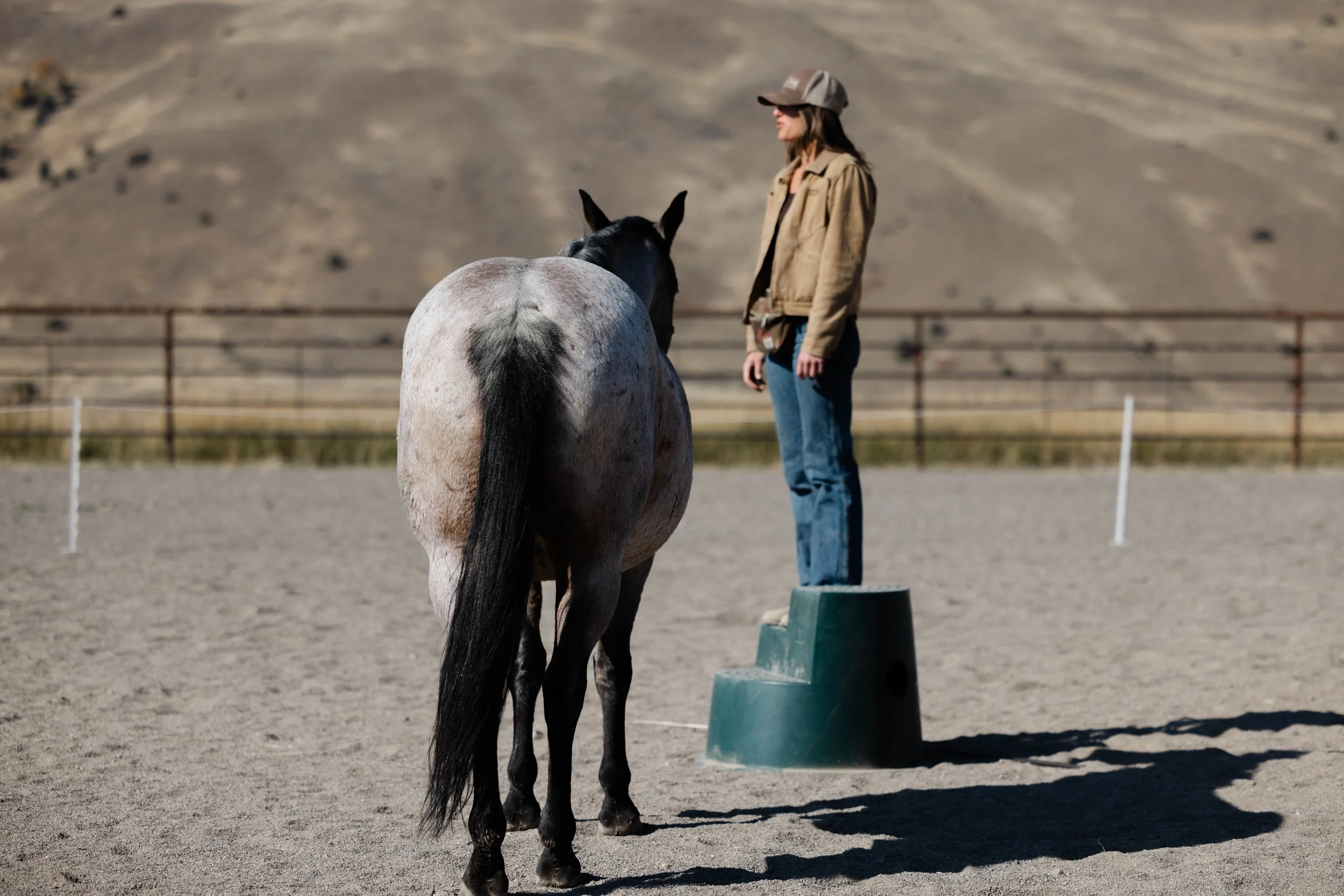Ego or Empathy?
When actions speak louder than words….
There are things I hear in the horse world all the time: "I love my horse," "my horse is my best friend," "they are my soul horse/dream horse," "I would do anything for my horse."
But is this what love looks like?
Because what I see is horses suffering, out loud or in silence; horses who are sick and in pain because of the way they are being treated and worked; horses who are frustrated, misunderstood, and often traumatized.
Is this how we treat the ones we love?
Transitioning from conventional, human-centric methods to a horse-centric way of being in relationship with our horses requires the continuous unlearning of ego-centric ideologies, and a conscious re-connecting with our empathy. Instead of seeing the horse's behavior and only thinking about how it impacts us, or how it makes us look or feel, this approach asks us to practice seeing things from our horse's perspective. To be clear - this has nothing to do with anthropomorphizing our horses. We can recognize that horses are distinctly different from us, with needs that are not the same as ours, while at the same time taking a good hard look at what we expect of our domesticated horses on a daily basis, and ask ourselves if we can really call this love?
What if we genuinely asked ourselves:
How would we feel if we were the horse in this situation?
Would we want to do what this horse is being asked to do?
Would we want someone treating us the way this horse is being treated?
If we were the horse in this situation, could we truly say that we trust our owner, and that we feel they are acting in our best interest?
What if the answer is no?
Good! Honesty and accountability are the first steps in creating positive change.
Confronting these parts of ourselves is a painful, yet necessary part of this journey. It’s painful, because it hurts to realize that we caused harm or pain to someone we love (that’s why it’s called empathy). And it’s necessary, because in taking responsibility we get to reconnect not only with our empathy, but also our power and agency - the power to stand up for our horses, and ourselves, and say “no!” to harmful practices, and the agency to chose a new way forward. Each and every one of us has power, agency, and choices, and while choosing a different path can feel difficult and lonely at times, it is a price worth paying for the peace of aligning our actions with our words, living in a state of congruence, and getting to experience a deep and trusting friendship with our horses.
So before we look to anyone for advice and inspiration, let’s look to their horses - would they describe the relationship as a friendship? Are they allowed to communicate (including saying no), and do they clearly communicate that they enjoy their time with their person? Do they feel respected, valued, heard, seen, and loved?
Emily & Arya have an authentic friendship.
Arya was feeling a bit tired on this day. She does enjoy groundwork every once in a while, but only if she sees a sense in what Emily suggests.
Emily climbs on the mounting block to see if Arya wants to take her on a ride at liberty around the arena. Arya likes riding, and walks over to see what Emily is doing.
Emily asks if Arya wants to step up to the mounting block, so she can get on.
Arya has no negative experiences with being ridden, and usually willingly steps up to let Emily climb on her back. But, Emily is simply asking a question, which Arya gets to answer based on how she feels in the moment.
Arya thinks about Emily’s question…
and gives her answer: “Not today!”
It’s totally normal that our horses sometimes just don’t feel like doing something, but sometimes it can be a sign that there’s something else going on. Since Arya usually likes riding, Emily had her examined by a vet just in case, and in doing so discovered that Arya was experiencing some stomach issues that were causing her discomfort.
It is normal to feel disappointed in a situation like this, however, in relational, consent-based work with horses it is imperative that the horse has the right to say “no.” All communication from our horses is vital, and can let us know about how they are feeling physically and emotionally, both within themselves and about our relationship. And when we can respect our horse’s “no,” the next time the horse offers their back to us, we know it is truly by choice and because they are feeling up for it, and that is such a gift.
This is what true friendship is all about - having a true back and forth conversation with each other, and respecting each other’s boundaries. This is not about ego, performance, or achievements - it’s about connection and attunement, and about spending quality time together in ways that feel good to both horse and human.
